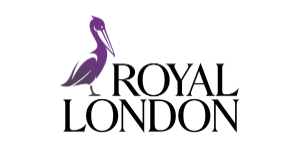It’s worth considering Life Insurance to make sure your family is taken care of if you’re not around. Maybe you want it to cover school fees for younger children or university costs for older ones. You can choose coverage that lasts until your child is an adult, usually 18, but this can be extended.
What Is The UK’s Best Life Insurance In 2026?
Our “best” insurer lists reflect our independent analysis of product features, service quality, and value. They are intended as a guide only – the right provider for you may differ depending on your needs and circumstances.
Finding the best Life Insurance in the UK can feel complex. There are a range of different insurers and plans available, each with their own unique policy options and levels of cover. This can make the decision-making process overwhelming, and it can be difficult to know where to begin.
This 2026 guide reviews leading insurers side by side – highlighting claim rates, unique benefits and extra cover – so you can make an informed choice and secure the right protection for your circumstances.
Which Life Insurance Is Best In 2026?
The UK has a few major Life Insurance providers to choose from, each with their own unique policy types, pricing structure, and underwriting process.
There’s no one-size-fits-all when it comes to insurance. The “best” Life Insurance for you won’t necessarily be the best for someone else, as it all depends on your unique situation. That’s why it’s important to compare quotes and policies from different providers. And the cheapest quote isn’t always the best.
As an FCA-authorised firm, you can trust Drewberry to guide you with integrity and knowledge. You can find us on the Financial Services Register.
How We’ve Chosen Our Top Providers
As an independent insurance broker, we deal with a number of leading insurers every day. We’ve weighed up the key features and benefits of each provider’s offering to create this shortlist. Details we’ve compared for the best Life Insurance companies include:
- Claims payout rates
- Defaqto rating and Trustpilot review scores
- Free policy benefits
- Optional policy add-ons.
Aviva

Aviva is one of the UK’s leading insurance providers, offering a wide range of financial services such as insurance, investments, pensions, and retirement planning.
Aviva offers flexible life insurance options tailored to your needs. You can choose from level, decreasing, or increasing cover, and there’s an option to add Critical Illness cover for an additional cost. Policies are available for anyone aged 18 to 77 and must end before your 91st birthday.
- Claims payout rate: 98.8% in 2024
- Defaqto rating: 5⭐
- Maximum entry age: 77
- Critical Illness Cover: Available as an optional extra
- Additional benefits: Aviva DigiCare+: Annual health checks, Bupa 24/7 helpline, mental health support, personal nutritionists, bereavement and legal support.
Pros And Cons Of Aviva Life Insurance
Pros | |
|---|---|
✅ | High Payout Rate |
✅ | Great Free Benefits |
✅ | Generous Funeral Care |
Cons | |
|---|---|
👎 | Limited GP Appointments |
👎 | First Death Payout |
What Aviva Customers Say
As of November 2025, Aviva currently has over 52,000 reviews on Trustpilot (73% of them giving 5⭐), giving them an average “Excellent” score of 4.3/5 stars. Note that this is for the company as a whole, rather than just the protection division.
Read our specialist review of Aviva Life Insurance, or get a quote online in 60 seconds.
Guardian

Guardian (or Guardian 1821) is making waves in the UK insurance market with its modern approach to protecting families and homes. Although the company’s roots go back over 200 years, it was relaunched in 2018 with a fresh focus on innovation and customer benefits.
Guardian offers two main options: Life Protection (includes level term, increasing, and decreasing cover with no standard exclusions), and Life Essentials (a more affordable option with similar benefits). Both are available to UK residents aged 18 and over, with pricing based on factors like age, smoker status, and BMI.
- Claims payout rate: 92% in 2024
- Defaqto rating: 5⭐
- Maximum entry age: 64
- Critical Illness Cover: Available as a standalone or combined policy
- Additional benefits: HALO and Anytime: Claims support service, 24/7 GP, second medical opinion, emotional and physical wellbeing consultations.
Pros And Cons Of Guardian Life Insurance
Pros | |
|---|---|
✅ | Dual Life Cover As Standard |
✅ | Broad Terminal Illness Coverage |
✅ | Family Protection |
Cons | |
|---|---|
👎 | Limited customer reviews |
What Guardian Customers Say
As of November 2025, Guardian only has 4 reviews on Trustpilot (only one of them giving 5⭐), giving them an “Average” score of 3.5/5 stars.
Read our specialist review of Guardian Life Insurance, or get a quote online in 60 seconds.
Legal & General

Founded in 1836, Legal & General is the UK’s top Life Insurance provider with over 180 years of experience.
Known for affordable premiums and excellent customer service, it’s a trusted choice for protecting what matters most. Monthly premiums start as low as £5, making it accessible to nearly everyone.
- Claims payout rate: 97% in 2024
- Defaqto rating: 5⭐
- Maximum entry age: 77
- Critical Illness Cover: Available as an optional extra
- Additional benefits: RedArc: Health and wellbeing assistance from registered nurses, available to policyholders as well as partners and children.
Pros And Cons Of Legal & General Life Insurance
Pros | |
|---|---|
✅ | High Payout Rate |
✅ | Nurse Support Services |
✅ | Strong Industry Reputation |
Cons | |
|---|---|
👎 | Minimal Additional Benefits |
👎 | Eligibility For Terminal Illness Payout |
What Legal & General Customers Say
As of November 2025, Legal & General currently has over 26,000 reviews on Trustpilot (57% of them giving 5⭐), giving them an average “Excellent” score of 4.3/5 stars. Note that this is for the company as a whole, rather than just the protection division.
Read our specialist review of Legal & General Life Insurance, or get a quote online in 60 seconds.
LV= (Liverpool Victoria) Life Insurance

Liverpool Victoria (LV=) is a large provider of individual protection and financial products in the UK. Founded in 1843, LV started out as “The Liverpool Independent Legal Victoria Burial Society” and sold Life Insurance at the cost of a penny per month. Now with over 180 years of experience, it offers a range of protection products and has acquired over 1.28 million customers.
- Claims payout rate: 97% in 2024
- Defaqto rating: 5⭐
- Maximum entry age: 84 (for level or decreasing cover)
- Critical Illness Cover: Available as an optional extra
- Additional benefits: LV= Doctor Services: Virtual GP consultations, prescriptions, second opinion services, remote physiotherapy, remote psychological services, and discounted health MOTs.
Pros And Cons Of LV=Life Insurance
Pros | |
|---|---|
✅ | Decent Free Benefits |
✅ | Excellent Customer Reviews |
✅ | Multibuy Discounts |
Cons | |
|---|---|
👎 | Dated Process |
👎 | Potentially Costly Premiums |
What LV= Customers Say
As of November 2025, LV= currently has over 81,000 reviews on Trustpilot (80% of them giving 5⭐), giving them an “Excellent” score of 4.5/5 stars. Note that this is for the company as a whole, rather than just the protection division.
Read our specialist review of LV= Life Insurance, or get a quote online in 60 seconds.
When looking for the best Life Insurance UK, there isn’t a single provider that’s “better than the rest”, but there will be a provider that’s best for your individual needs. It’s a good idea to get independent advice from a specialist before taking out a policy. Call us on 02084327333 or email help@drewberry.co.uk to chat through your options.
Royal London

Royal London is the UK’s largest mutual insurance and pensions provider, trusted by over 8.6 million customers.
Since 1861, they’ve been protecting families, homes, and businesses with a wide range of customisable Life Insurance options, including specialist cover for people with conditions like diabetes.
- Claims payout rate: 98.7% in 2024
- Defaqto rating: 5⭐
- Maximum entry age: 88
- Critical Illness Cover: Available as a standalone or combined policy
- Additional benefits: Helping Hand: Mental wellbeing services, 24/7 virtual GP, virtual physiotherapy, second medical opinion, bereavement support.
Pros And Cons Of Royal London Life Insurance
Pros | |
|---|---|
✅ | “Underwrite Later” Option |
✅ | Specialist Support |
✅ | High Payout Rate |
Cons | |
|---|---|
👎 | Children’s CIC Not Covered |
What Royal London Customers Say
As of November 2025, Royal London currently has over 4,500 reviews on Trustpilot (77% of them giving 5⭐), giving them an “Excellent” score of 4.6/5 stars. Note that this is for the company as a whole, rather than just the protection division.
Read our specialist review of Royal London Life Insurance, or get a quote online in 60 seconds.
Scottish Widows

Part of the Lloyds Banking Group, Scottish Widows is one of the UK’s oldest financial institutions, founded in 1815. With over 200 years of experience, they have built a strong reputation for stability and customer care, offering a wide range of protection, pension, and investment products.
- Claims payout rate: 98% in 2024
- Defaqto rating: 5⭐
- Maximum entry age: 79
- Critical Illness Cover: Available as a standalone or combined policy
- Additional benefits: Scottish Widows Care: 24/7 Virtual GP, dedicated personal nurse, trauma and bereavement support, second medical opinions, mental health support.
Pros And Cons Of Scottish Widows Life Insurance
Pros | |
|---|---|
✅ | Outstanding Claims Record |
✅ | Accidental Death and Mortgage Cover |
✅ | Good Free Benefits |
Cons | |
|---|---|
👎 | No Online Trust |
What Scottish Widows Customers Say
As of November 2025, Scottish Widows currently has over 10,000 reviews on Trustpilot (71% of them 5⭐), giving them an “Excellent” score of 4.5/5 stars. Note that this is for the company as a whole, rather than just the protection division.
Read our specialist review of Scottish Widows Life Insurance, or get a quote online in 60 seconds.
Vitality

Vitality Life Insurance is a standout choice for many UK customers, combining comprehensive cover with innovative benefits. With over 1 million members, it offers a unique rewards system, helping policyholders to live a healthier, more rewarding life.
- Claims payout rate: 98.9% in 2024
- Defaqto rating: 5⭐
- Maximum entry age: 75
- Critical Illness Cover: Available as an optional extra
- Additional benefits: Vitality Optimiser: Save up to 40% on premiums by adopting a healthy lifestyle, and earn rewards and discounts from top brands through the Vitality Programme.
Pros And Cons Of Vitality Life Insurance
Pros | |
|---|---|
✅ | Make Savings With Healthy Habits |
✅ | Exclusive Rewards |
✅ | Huge Customer Base |
Cons | |
|---|---|
👎 | Limited Additional Benefits |
👎 | Limited Perks For Inactive Or Remote Members |
👎 | No Online Trust |
What Vitality Customers Say
As of November 2025, Vitality currently has almost 59,000 reviews on Trustpilot (71% of them 5⭐), giving them an “Excellent” score of 4.4/5 stars.
Read our specialist review of Vitality Life Insurance, or get a quote online in 60 seconds.
Zurich

Zurich is a well-established global insurer, recognised for its strong presence in over 215 countries.
They offer a variety of insurance products, and is known for offering flexible and comprehensive policies that can be tailored to your specific needs.
- Claims payout rate: 99.8% in 2024
- Defaqto rating: 5⭐
- Maximum entry age: 83
- Critical Illness Cover: Available as a standalone or combined policy
- Additional benefits: Zurich Accelerate: Virtual consultant, private diagnostics, second medical opinion, cancer support, global treatment options.
Pros And Cons Of Zurich Life Insurance
Pros | |
|---|---|
✅ | Fracture Cover |
✅ | Global Reputation |
✅ | Flexible Coverage |
Cons | |
|---|---|
👎 | No Online Trust |
👎 | Less Competitive |
What Zurich Customers Say
As of November 2025, Zurich currently has over 3,300 reviews on Trustpilot (61% of them 5⭐), giving them an “Average” score of 3.6/5 stars. Note that this is for the company as a whole, rather than just the protection division.
Read our specialist review of Zurich Life Insurance, or get a quote online in 60 seconds.
We have taken care to ensure that information in this review is accurate. However, the market changes frequently, and we do not guarantee 100% accuracy and accept no liability for any losses.
How To Choose The Best Life Insurance
Finding the “best” Life Insurance will depend on your unique needs. Here are some aspects to consider.
Step 1: Think About Your Personal Circumstances
Life Insurance provides a financial safety net for your loved ones should you pass away. It’s a lifeline if any of the following situations apply to you. Do you have children, a mortgage, or a partner who depends on you financially?
If you already have certain benefits, for example Death in Service through your employer, you might not need to double up on cover – but gaps are common, especially for the self-employed. You might also consider:
- Family Income Benefit: Family Income Benefit provides a regular income to your dependents rather than one lump sum. This offers a more manageable benefit to replace lost income so your loved ones can maintain their lifestyle should you pass away.
- Whole Of Life Insurance: Whole of Life Assurance might be the right option if your loved ones will definitely need a lump sum after you’ve gone, possibly to pay funeral costs or meet an inheritance tax bill. With this type of Life Assurance, there’s no set policy length. It lasts until your death and pays out whenever this might be (providing you keep paying premiums).
- Over 50s Life Insurance: This type of Life Insurance is specifically designed for seniors. Life Insurance gets more expensive as you get older, but it can still be a worthwhile investment, especially since many people are buying homes and having kids later in life. If you’re feeling confused, give our specialists a call on 02084327333 to get free advice.
Step 2: Compare the Key Features
When comparing policies, look closely at:
- Policy wording: Check how clearly the policy is worded. What type of things might be excluded from your cover?
- Premium type: Will your monthly premium stay the same over the years, or increase annually?
- Term type: You can choose between decreasing, increasing, and level term insurance. All will vary in cost, and some may be more suitable for your needs than others
- Additional benefits: Most protection policies come with a suite of additional services included alongside your core cover. These usually include perks such as: Virtual GP services, mental health support, and probate support – but will differ between providers.
Step 3: Understand the Cost
The price of Life Insurance depends on your age, health, benefit size, and policy type.
Premiums vary a lot between providers, so always get multiple quotes and make sure you’re comparing like-for-like. Check out our guide to the cost of Life Insurance.
It’s crucial to understand what’s not covered before you buy, which is why we always recommend speaking to an independent adviser before taking out Life Insurance. It’s free to get our advice, and we’ll search the market to find you the most suitable policy for your needs. Call 02084327333 to chat through your options with one of our friendly advisers.

There’s no one-size-fits-all when it comes to insurance. The “best” Life Insurance for you won’t necessarily be the best for someone else, as it all depends on your unique situation. It’s crucial to compare quotes and policies from different providers. And the cheapest quote isn’t always the best.
Alex Weir
Independent Protection Specialist
Which Life Insurance Companies Have The Best Payout Rates?
Another area to consider is the claims payout rate of a potential Life Insurance insurer. Claims stats are higher than most people think, most insurers publishing consistently high payout rates.
As you can see in the table below, in the last few years, nearly all insurers have paid out more than 90% of the claims they received.
| Insurer | 2022 | 2023 | 2024 |
|---|---|---|---|
| Aviva | 99% | 99.3% | 98.8% |
| Legal & General | 96.7% | 97% | 97% |
| LV= | 97% | 97% | 97% |
| Royal London | 99.4% | 94.1% | 98.7% |
| Scottish Widows | 99% | 99.4% | 98% |
| Vitality | 99.7% | 99.7% | 98.9% |
| Zurich | 98% | n/a | 99.8% |
IMPORTANT NOTICE 🧐
You shouldn’t use payout statistics alone to decide which insurer offers the best life insurance. Instead, use them as a rough guide to compare successful claims across the industry as a whole.
How To Get The Best Life Insurance
You have two options when it comes to getting the best Life Insurance policy for your needs. You can either go directly to an insurer, or buy cover through an adviser, such as Drewberry.
Go Direct To An Insurer – Best if You Know What Policy You Want
With this method, you’ll need to approach every UK insurer and compare quotes/policy details from all of them to get the best deal.
Once you have some figures, you’ll also need to compare Life Insurance policies to ensure you get the most suitable cover. This involves a lot of fine print and insurance jargon.
Get Independent Advice – Best if You Need Help Choosing
This is the smart choice. An independent adviser (like our Drewberry specialists) will consider your circumstances fully to make sure you get the best Life Insurance for your needs.
We do all the hard work for you, comparing leading insurers on your behalf so you can be sure you’ve got the best deal for your needs. Where we provide a regulated advice service, we’re responsible for the advice we provide to you – giving you protection and peace of mind. Plus, you won’t pay us a penny.

The cheapest policy isn’t always the best one. Your protection adviser can work with you to balance out the right policy features with a price that fits your budget.
It can be daunting and stressful to try and arrange cover by yourself, so don’t be afraid to call us on 02084327333 or email help@drewberry.co.uk.
Samantha Haffenden-Angear
Independent Protection Specialist
Life Insurance FAQs
Is Life Insurance best if I have children?
Is Life Insurance best if I have a mortgage?
While Life Insurance isn’t a mandatory requirement for obtaining a mortgage, it’s a smart way to provide a financial safety net. Ask yourself: could your partner continue to pay the mortgage without you? With Life Insurance in place, they could pay off the mortgage should the worst happen.
Is Life Insurance best if I'm married?
Think about how your partner would manage financially without you. You can choose a fixed payout insurance (level term) or one that increases over time to keep up with the cost of living (increasing term). If both you and your partner want insurance, getting two separate policies might be smarter than one joint Life Insurance policy. With separate policies, if something happens to both of you, there would be two payouts instead of just one with a joint policy.
Is Life Insurance best for handling inheritance tax?
If you’re worried about a big inheritance tax bill on your estate, you can set up a Life Insurance policy in a trust to cover this tax. This way, your family gets to keep your whole estate without having to sell assets to pay off the tax bill. Read more about writing Life Insurance into trust.
Get Life Insurance Quotes and Specialist Advice
With a number of UK Life Insurers to compare, there’s a lot of information to sift through. Luckily, we live and breathe insurance, and are ready to chat about what’s best for you.
We’ve helped thousands of people to protect their most important asset – themselves. Call 02084327333, email help@drewberry.co.uk, or compare quotes to get started.
Why Speak to Us?
When it comes to protecting yourself and your finances, you deserve first-class service. Here’s why you should talk to us:
- There’s no fee for our service
- We’re an award-winning independent insurance broker, working with the leading UK insurers
- You’ll speak to a dedicated specialist from start to finish
- 4100 and growing independent client reviews rating us at 4.92 / 5
- Claims support when you need it most
- We’re authorised and regulated by the Financial Conduct Authority. Find us on the financial services register.
Contact Us
125-135 Preston Road
Brighton
BN1 6AF
Cookies
Drewberry™ uses cookies to offer you the best experience online. By continuing to use our website you agree to the use of cookies including for ad personalization.
If you would like to know more about cookies and how to manage them please view our privacy & cookie policy.









